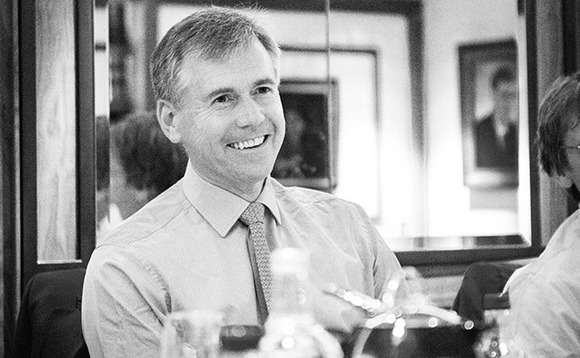
Emergence of "mega LPs" expected to continue in 2016

The third instalment of our 2015 review / 2016 preview, which brought together leading practitioners from across the industry, discusses the outlook for fundraising in the coming months
In late November, unquote" brought together a group of leading private equity practitioners from various corners of the market to discuss industry developments in 2015 in order to assess the outlook for year ahead. Following our previous instalments looking at exits and deal financing, this third edition discusses fundraising.
Participants
- Farah Buckley, Adveq
- David Burns, Phoenix Equity Partners
- Lars Eriksson, Riverside Partners
- Mounir Guen, MVision
- Graeme Gunn, SL Capital Partners
- Richard Sanders, Catalyst Corporate Finance
- David Whileman, Inflexion Private Equity
- Tim Wright, DLA Piper
- Moderator: Alice Murray, unquote"
Alice Murray: How will 2016 look in terms of fundraising? There are some very big funds coming to the market at the moment, what kind of impact will that have more broadly?
Mounir Guen: 2016 will look huge because of the big funds in the market at the same time.
But the supply dynamic is changing. Most of the mature US PE investors are at their number, which is around 10-12%. And they're trying to concentrate and put larger tickets with fewer choices. And the choices are driven by opinions and judgements of future performance because a lot of their results are quite similar historically.
On the other side of the equation, there are pools of capital in Canada and in Asia and other countries that are growing substantially – look at Taiwan and Korea, they'll be 5x in 5 years in terms of assets. Taiwan is currently 2% allocated to PE, they'll go to 5% soon in terms of total portfolio that can be allocated to alternatives. So there will be new capital coming into the asset class.
The other thing is there are a number of large LP programs, and PE funds cannot absorb their capital, so the investors are and will go direct. And for the larger end of the market you'll have a focus on more strategic and direct investments as their programs need to focus on the deployment. And those investors, I think, are going to go 50:50 in the next five years – half in directs and half in third party funds.
An interesting question for large funds coming to market: if you're raising €6bn do you want six LPs committing €1bn each? Which a GP can get if they've been consistently deploying capital and their net returns are what the investors want. Or do the GPs want a more diversified investor base with 100 LPs plus? So we might see GPs raising more but being more concentrated. It will be interesting to see.
But the investor base is positively inclined towards Europe, which will be nice to see after the experience we had a while back.
 Farah Buckley: We're also seeing at the small end of the market where we tend to focus, some good managers struggling to raise capital. The fact is, within that sub €200m fund size there are a lot of teams out there who are inexperienced when it comes to fundraising, and these are the teams who are perhaps not institutional enough to reach out to that big institutional universe, who are looking for certain boxes to be checked. That's a great opportunity because there are some really good groups out there.
Farah Buckley: We're also seeing at the small end of the market where we tend to focus, some good managers struggling to raise capital. The fact is, within that sub €200m fund size there are a lot of teams out there who are inexperienced when it comes to fundraising, and these are the teams who are perhaps not institutional enough to reach out to that big institutional universe, who are looking for certain boxes to be checked. That's a great opportunity because there are some really good groups out there.
And going back to what Mounir said with this emergence of mega LPs; we have seen that in 2015 and I suspect it will continue. Look at what's going on in the UK; we've got the 89 local authority government pension schemes. And the Chancellor has said that he would like these to be merged into effectively six super funds. Whether that happens or not – no one has a crystal ball.
You've also got the London Collective Investment Vehicle, which will be around £25bn. The phenomenon in the UK may well be a shift to what we see in markets like Canada. So what that means for the GPs is you may well have big UK LPs with more negotiating power; more muscle power – who will probably have the resources to attract top quality people. Watching how that evolves over the next year onwards will be really interesting, because it won't just be the existing big players that we're used to, it will almost be an emergence of new LPs on our home turf.
Graeme Gunn: In general, investor appetite for value is turning back to Europe again. The US is a bit overheated and it's difficult to get capital to work in the middle market. When we look out, Asia and emerging markets look tough generally but we don't invest there.
 MG: I disagree. The US is continuing to produce capital, Asia is exciting, but Europe has a lot of value and has always been a value play, and will be able to do well.
MG: I disagree. The US is continuing to produce capital, Asia is exciting, but Europe has a lot of value and has always been a value play, and will be able to do well.
But the thing about Europe is you can count on two hands the number of new mid-market funds that have come out in the last ten years; how many new GPs have there been that are €2bn and above in Europe? The selection of GPs has been steady for the last 10 years, so everyone should raise easily if the results are decent because there isn't much competition.
Whereas in the US, every year there's a whole group of very aggressive energetic spin outs and new GPs coming to market – there's this vibrant energy. And in Asia there's also growth in headcount. And this can affect Europe – in the long run – the current group is getting older and there's no replacement, we need new blood, new life, new GPs.
FB: Our stats for Europe say there are 25 groups above €2bn, then 75 between €500m and €2bn, then 600 below €500m. But I would argue that it's this smaller fund size group where we've got the new blood coming in – that's the population that's growing. That's the area we feel is most exciting.
Look out for the final instalment tomorrow, discussing challenges for private equity in 2016, as well as our panelists' wishes for the coming year. unquote" would like to thank MVision, Catalyst Corporate Finance and DLA Piper for making this event possible.
Latest News
Stonehage Fleming raises USD 130m for largest fund to date, eyes 2024 programme
Multi-family office has seen strong appetite, with investor base growing since 2016 to more than 90 family offices, Meiping Yap told Unquote
Permira to take Ergomed private for GBP 703m
Sponsor deploys Permira VIII to ride new wave of take-privates; Blackstone commits GBP 200m in financing for UK-based CRO
Partners Group to release IMs for Civica sale in mid-September
Sponsor acquired the public software group in July 2017 via the same-year vintage Partners Group Global Value 2017
Change of mind: Sponsors take to de-listing their own assets
EQT and Cinven seen as bellweather for funds to reassess options for listed assets trading underwater








